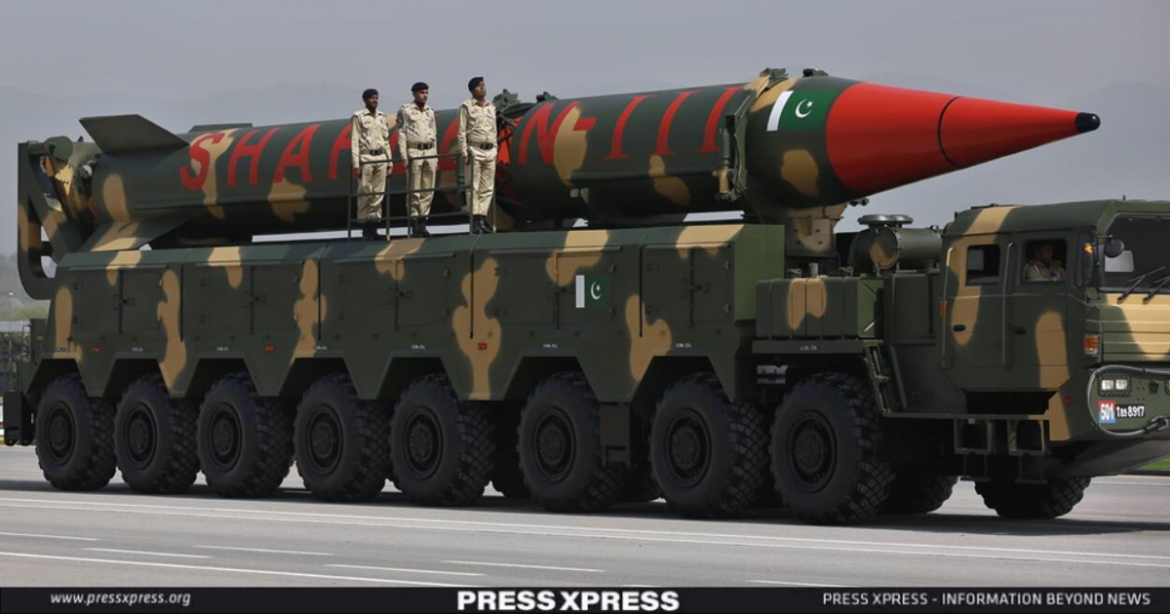India has intercepted a Pakistan-bound ship from China at Mumbai’s Nhava Sheva Port, suspected of carrying equipment that could be used for Islamabad’s nuclear and ballistic missile program. The seizure has raised concerns about the proliferation of dual-use technology.
The ship, CMA CGM Attila, was stopped on January 23 by Indian port officials, who alerted the defence authorities. A team of experts from the Defence Research and Development Organization (DRDO) examined the consignment, which included a Computer Numerical Control (CNC) machine manufactured by an Italian company. The DRDO certified that the CNC machine could be used for making critical parts for Pakistan’s missile development program.
You can also read: Iran’s conservatives win polls amid record low turnout
The consignment, weighing 22,180 kilograms, was shipped by Taiyuan Mining Import and Export Co. Ltd and was meant for Cosmos Engineering, a Pakistani company that supplies parts to the automobile industry. However, Indian officials suspect that Cosmos Engineering is a front for Pakistan’s nuclear and missile program, as it has been on a watchlist since March 12, 2022, when another shipment of Italian-made thermoelectric instruments was intercepted at the same port.
The CNC machine is a controlled device under the Wassenaar Arrangement, an international regime that aims to prevent the spread of conventional weapons and dual-use goods and technologies. India is among the 42 member countries that exchange information on transfers of such items. Pakistan is not a member of the Wassenaar Arrangement, nor of the Nuclear Suppliers Group, the Missile Technology Control Regime, or the Australia Group, which are the other multilateral export control regimes.
Pakistan’s Nuclear Program: A Cause for Concern

Pakistan is one of nine states that possess nuclear weapons. Pakistan began developing nuclear weapons in January 1972 under Prime Minister Zulfikar Ali Bhutto, who delegated the program to the Chairman of the Pakistan Atomic Energy Commission (PAEC) Munir Ahmad Khan.
Pakistan’s nuclear program was motivated by its rivalry with India, especially after the 1971 war that resulted in the creation of Bangladesh. Pakistan conducted its first nuclear test in May 1998, shortly after India’s second nuclear test.

Pakistan’s nuclear arsenal is estimated to be around 170 warheads, making it the sixth-largest nuclear power in the world. Pakistan has also developed a range of ballistic and cruise missiles to deliver its nuclear weapons, some of which can reach targets up to 2,750 kilometers away.
Pakistan’s nuclear program has raised several security and proliferation concerns, both regionally and globally. Pakistan has not signed the Nuclear Non-Proliferation Treaty (NPT) or the Comprehensive Nuclear-Test-Ban Treaty (CTBT) and has opposed the Fissile Material Cut-off Treaty (FMCT) that would ban the production of fissile material for nuclear weapons.
Pakistan has also been accused of transferring nuclear technology and materials to other countries, such as North Korea, Iran, and Libya. The most notorious case was that of Abdul Qadeer Khan, the father of Pakistan’s nuclear bomb, who confessed in 2004 to running a clandestine network of nuclear proliferation for decades. Pakistan is one of nine states that possess nuclear weapons, along with India, China, the US, Russia, the UK, France, Israel, and North Korea.
Pakistan’s nuclear and missile program poses a serious challenge to regional and global security, as it increases the risk of nuclear conflict with India, nuclear terrorism by extremist groups, and nuclear proliferation to other states or non-state actors. Pakistan has also been accused of violating international norms and taking arbitrary measures in violation of international law, such as the seizure of commercial goods by India.
Implications of the Seizure for India and the World
The seizure of the Pakistan-bound ship from China has exposed the fragility of the global non-proliferation regime. It has also highlighted the need for greater vigilance and cooperation among the international community to prevent the spread of dual-use technology and equipment that could fuel nuclear and missile proliferation.
For India, the seizure has underscored the threat posed by Pakistan’s nuclear and missile program and the necessity of maintaining a credible nuclear deterrent and a robust defence capability. India has also called for a more transparent and accountable export control system in China. India has also urged China to join the global efforts to curb Pakistan’s nuclear and missile ambitions and to respect India’s legitimate security interests.
The seizure has also raised questions about the future of global supply chains and the implications for international trade. The disruption of free trade by states with dubious credentials could have adverse effects on the global economy The seizure has also highlighted the importance of adhering to the international standards and norms for the peaceful use of nuclear energy and the responsible transfer of dual-use goods and technologies.
The seizure of the Pakistan-bound ship from China at Mumbai port has revealed a potential threat to regional and global stability, as it suggests that Pakistan is continuing to pursue its nuclear and missile program. The seizure has also exposed the weaknesses of the international non-proliferation regime and the challenges of ensuring the security and integrity of the global supply chains. The seizure has called for a more concerted and coordinated response from the international community to prevent the proliferation of dual-use technology and equipment and to uphold the rule of law and the norms of responsible state behavior. India, as a responsible nuclear power and a rising global player, has a vital role to play in this endeavor.


